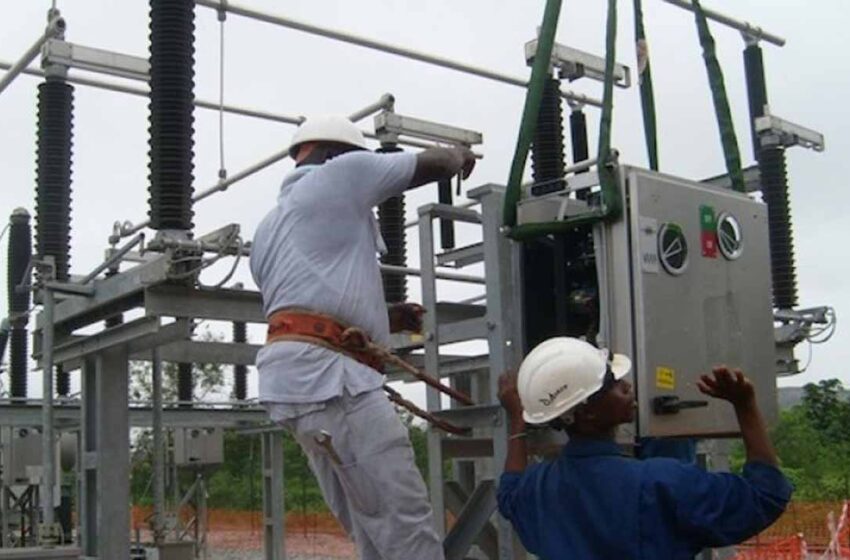Ikeja Electric, EKEDC: How Lagos residents can navigate 25-day blackout

Lagos residents prepare for 25-day power outage as DisCos announce daily blackouts for critical grid maintenance.
From July 28 to August 21, 2025, residents in Lagos will face daily electricity disruptions from 8:00 a.m. to 5:00 p.m., due to critical maintenance work by the Transmission Company of Nigeria (TCN). With both Ikeja Electric (IE) and Eko Electricity Distribution Company (EKEDC) affected, the outages will impact homes, businesses, schools, and essential services across the state. Here’s how to prepare, adapt, and stay safe during this period.
1. Prepare Your Home and Household
-
Charge Devices Before 8:00 a.m.
Ensure phones, power banks, laptops, rechargeable fans, torches, and radios are fully charged early in the morning or the night before.
-
Invest in Backup Lighting
Keep rechargeable lamps, LED bulbs, candles, and solar-powered lights handy for evening use. -
Preserve Perishables
Freeze extra blocks of ice overnight to help preserve food during the blackout window. Limit fridge/freezer access during outage hours. -
Stock Up on Essentials
Purchase non-perishable food, drinking water, fuel (for generators), batteries, and medications in advance to reduce daily stress. -
Have a Daily Schedule
Plan your day around the power outage. Finish heavy chores (laundry, ironing, vacuuming) before 8:00 a.m. or after 5:00 p.m.
READ ALSO
Ikeja Electric, EKEDC begin 25-Day power outage — check affected areas, time, other details
2. Business Continuity Tips
-
Review Operating Hours
Adjust business opening and closing times to avoid peak blackout hours. Businesses that rely heavily on electricity (barbershops, cold rooms, bakeries, cyber cafés) should maximize output before 8:00 a.m. -
Backup Power Solutions
Service your generator, charge your inverter batteries, or install solar panels if possible. Use fuel-efficient practices to manage cost. -
Communicate with Clients
Inform customers in advance about reduced hours, service delays, or alternative arrangements during blackout hours.
-
Data Protection
Regularly save your work and back up critical documents. Install an Uninterruptible Power Supply (UPS) to prevent data loss or equipment damage.
3. Schooling and Learning Adjustments
-
Morning Prep for Students
Encourage children to wake early, complete assignments, and charge school gadgets or lamps before 8:00 a.m. -
Remote Learning Caution
If your child is in virtual classes, consider using mobile hotspots and ensuring devices are charged the night before. Use radio or printed materials if internet access is disrupted.
4. Alternative Energy and Smart Usage
-
Utilize Inverters Wisely
Run only essential appliances during power outages to preserve battery life. Disconnect high-wattage devices from the inverter circuit.
-
Solar Energy as a Long-Term Fix
For homes and small businesses, this is a good time to consider switching to solar power, even if for lighting and charging alone. -
Energy Saving Habits
Turn off appliances when not in use. Replace old bulbs with energy-saving LEDs. Reduce reliance on electric water heaters or irons during blackout hours.
5. Community Coordination and Safety
-
Share Resources
Neighbours with generators or solar setups can collaborate—e.g., pooling funds for communal generator use, charging stations, or water storage. -
Secure Your Home
Ensure safety with security lights (solar or battery-powered), working locks, and functioning communication systems. -
Prevent Fire Hazards
Monitor candle use, unplug electronics, and do not refuel generators while hot. Keep fire extinguishers or buckets of sand nearby. -
Support Vulnerable Groups
Check in on the elderly, pregnant women, people with disabilities, or low-income neighbours. Share updates and practical help where possible.
6. Stay Informed and Responsive
-
Follow DisCo Channels
Keep tabs on official pages of Ikeja Electric and EKEDC for updates on load rotation schedules, maintenance status, or outage extensions. -
Weather Matters
The dry season increases demand for cooling; stay hydrated and avoid heat exposure, especially during afternoon hours when fans and A/Cs are off. -
Use Mobile Apps Wisely
Install news apps, flashlight apps, offline map apps, and energy consumption trackers to stay ahead and organized.
7. What NOT to Do
-
Don’t leave phones or laptops uncharged overnight
-
Don’t overload your generator or inverter
-
Don’t leave perishable goods in warm fridges beyond 4 hours
-
Don’t panic—this is a temporary disruption, not a system collapse
-
Don’t rely on unverified social media sources; stick to trusted updates
Turn the Disruption Into Discipline
Though inconvenient, this period can be an opportunity to cultivate better energy management, improve time management, and explore alternatives to Nigeria’s erratic grid. Whether you’re a student, entrepreneur, parent, or employee, the key is to plan, adapt, and stay informed.

